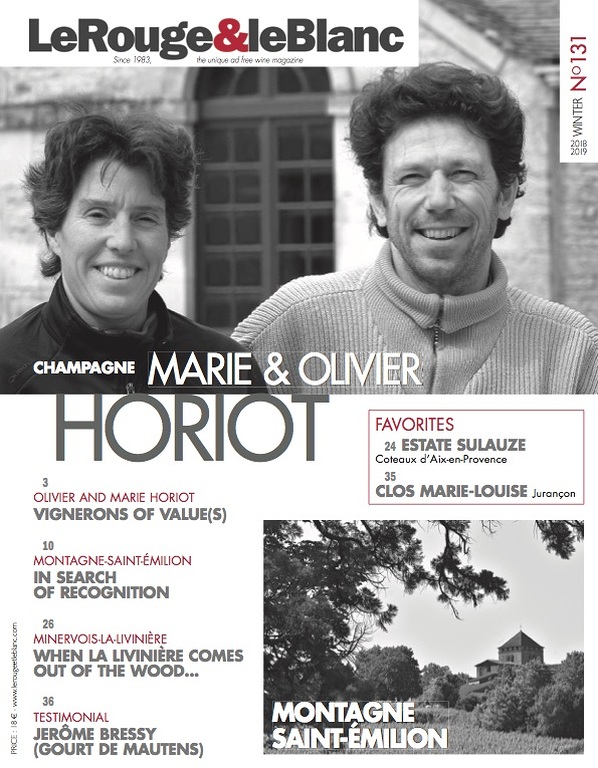Copper: The wrong accusation
Let’s start with a concession: in an ideal world, we would do without copper. We could also prohibit organic farmers from using a tractor. And in the same ideal world, there would be no mildew, no glyphosate and no pesticide. But, back on earth: we live in a world governed by compromises.
That’s why those people recently howling about organic farmers using this “dangerous pollutant” are out of line. At the hypocrisy world championships, they deserve a gold medal.
Conventional vine-growers too often express falsely naïve opinions along the following lines: “Sure, organic farming is a fine and lofty idea, but all that copper they use? No way!” This is their way of diverting our attention from the far greater threat posed by the many dangerous products in use in conventional farming, which accounts for 93% of all agricultural areas in France and 90% of the country’s vineyards (2017 data).
Copper is not dangerous for human health[1]. No serious study has demonstrated that it is any way dangerous[2]. If there were a huge health problem, the quantities used in the past (25 to 30 kg/ha per annum against 6kg/ha nowadays) would have had visible consequences.
But never mind. Today irreplaceable in organic farming[3], copper is more and more singled out. You don’t need to be Sherlock to unveil one of the reasons for this witch-hunt. Reading the commentaries posted on Vitisphere (a professional wine industry website) is very instructive.
A sales engineer in the chemical industry writes: “The 4kg/ha dose averaged over seven years is a risk-benefit compromise with scientific arguments behind it. Organic farming is supposed to bring environmental and health benefits. This will force people who rely only on the use of copper to shift their practices.” He then relishes the idea of organic farmers having to buy other products than copper, products much more profitable for his industry.
Should we listen to moral and hygiene advice from a man who manufactures products suspected to be dangerous for our health? It is also well known that chemical industry lobby groups abound around the French Ministry of Agriculture and its European counterparts in Brussels, a luxury that defenders of organic agriculture cannot afford.
A new European regulation entered into force on 1 February, 2019 that limits copper dosage in organic vine growing to 4kg/ha per year. This quantity is averaged over seven years, which means that wine growers are authorized to use 28kg/ha over this period of time, while the previous regulation permitted the use of 6kg/ha per year, averaged over five years.
The vineyards most exposed to mildew (Champagne, Burgundy, Bordeaux) will find it difficult to stay within this limit.
This regulation is dangerous for the future of organic farming in France at a time when the demand from consumers is quickly growing and when climate change is a growing issue. There are already rumors of a possible withdrawal from organic farming (the figure of 20% is cited) and of many farmers becoming more reluctant to move to organic.
The ultimate paradox? Conventional wine growers, who also use copper on an area nine times bigger than the full organic crop, will barely be controlled, while “organic certified” wine growers will be strictly monitored by their certification bodies.
Wisdom says when faced with two evils, choose the lesser of the two. Between some copper in the soil and a decline in organic agriculture, our choice is easy. To do nothing to protect and support organic farming would be an unacceptable failing – and a shame.
[1] For example, copper is not mentioned on the listing of the products likely to cause cancer established by the IARC (International Agency for Researche on Cancer) while glyphosate is.
[2] On this subject, read Rémi Chaussod, an expert in soil microbiology and the use of copper in vineyards, and a former research supervisor in soil microbiology at INRA Dijon.
[3] Some essential oils, in particular citrus oils, help to reduce copper dosage but not replace it. Some weeds, like Rumex, decrease copper toxicity in soil, and input organic carbon (Gérard Ducerf-Promonature, expert in indicator plants).

